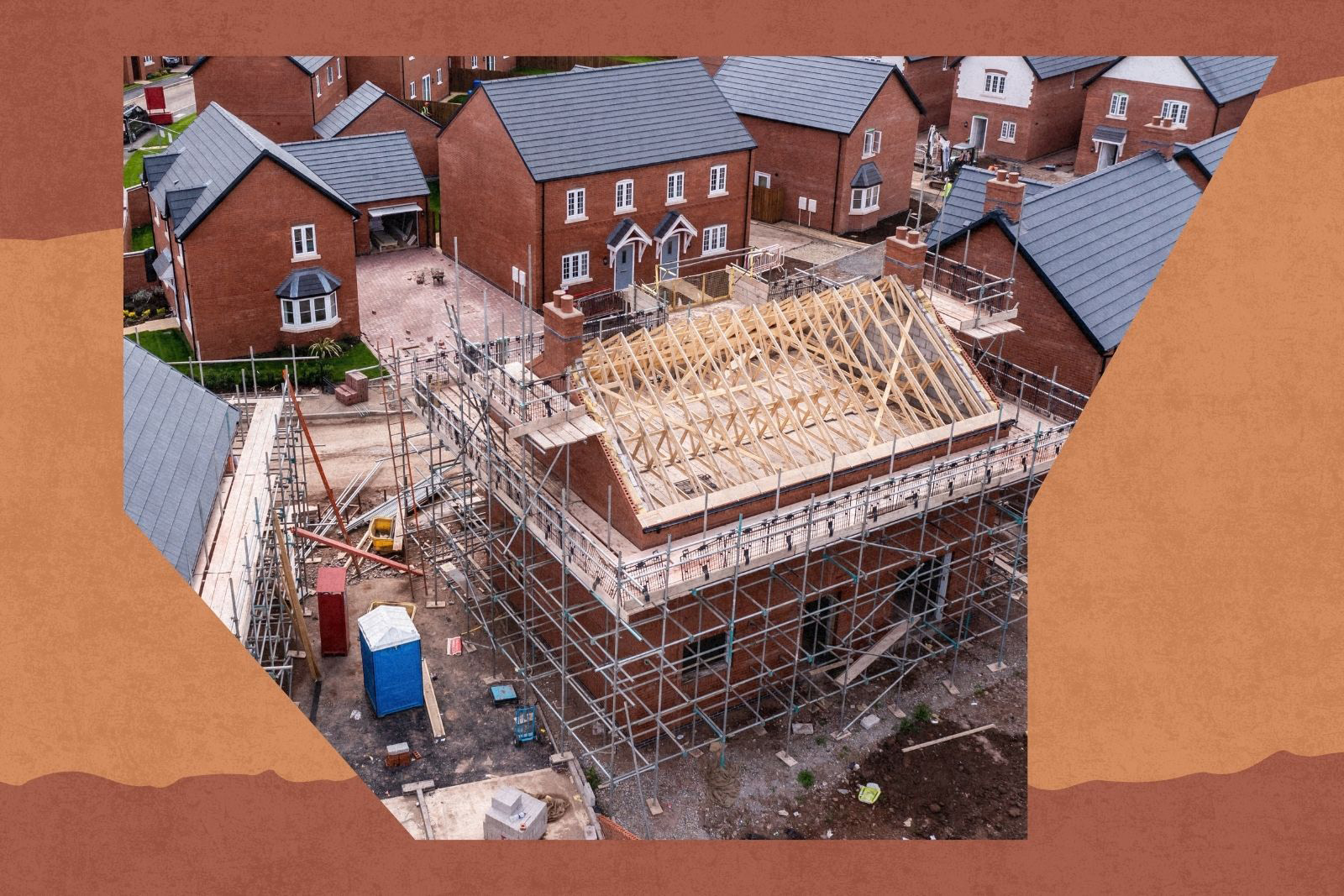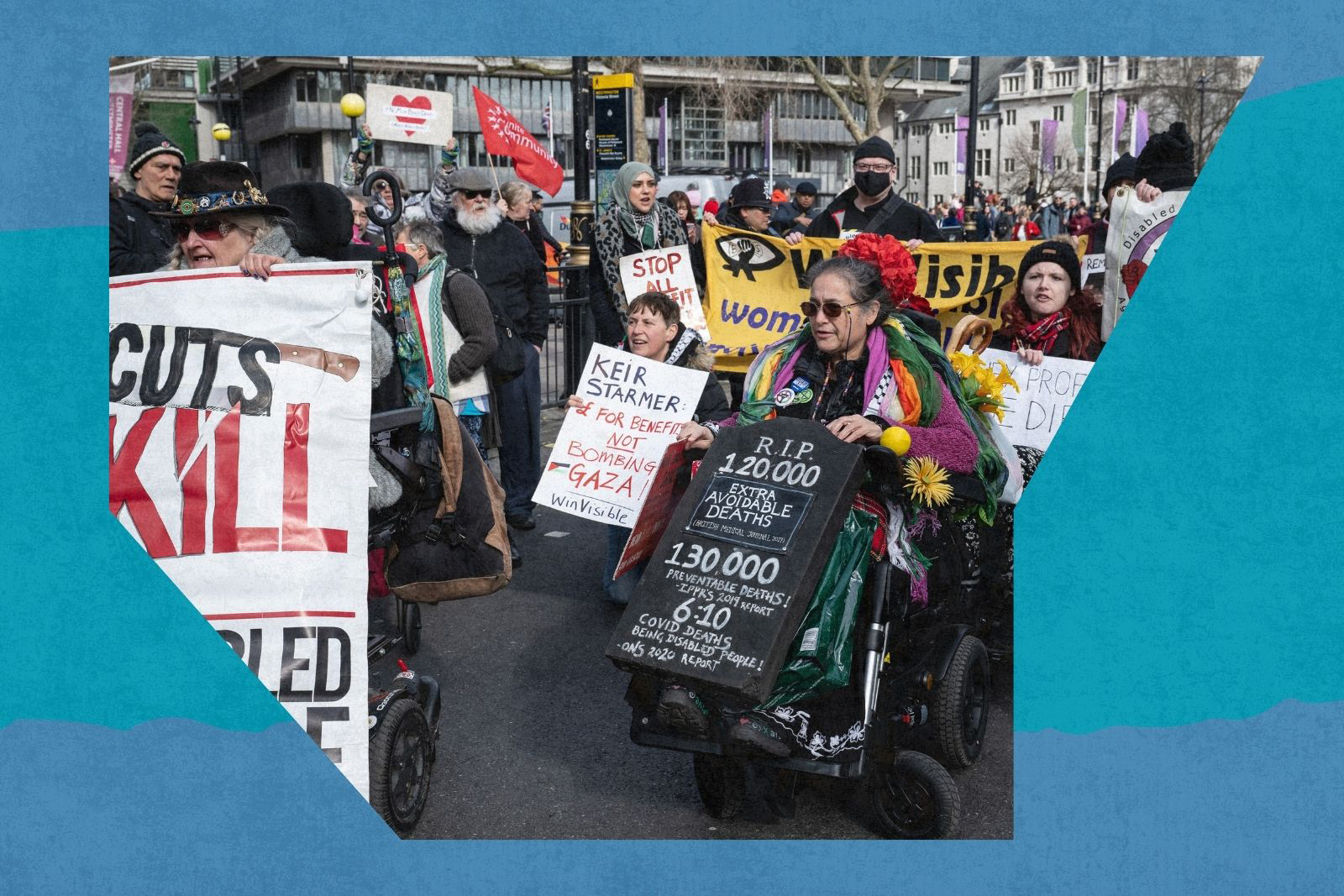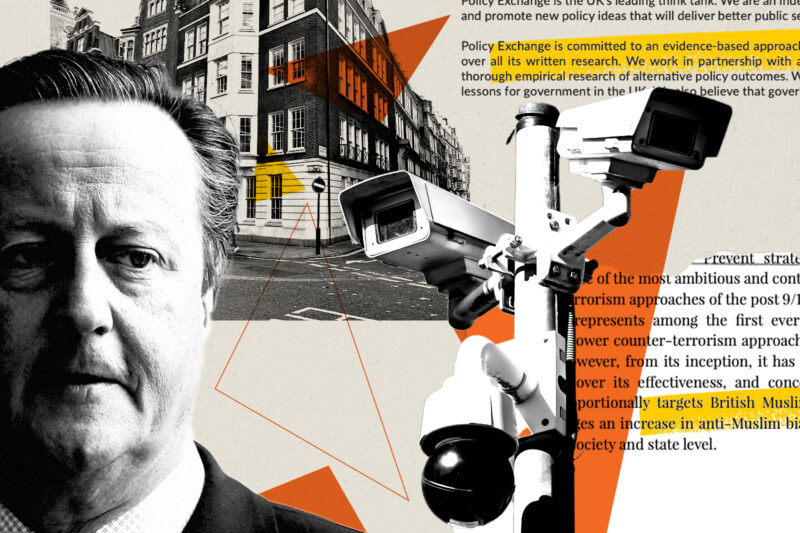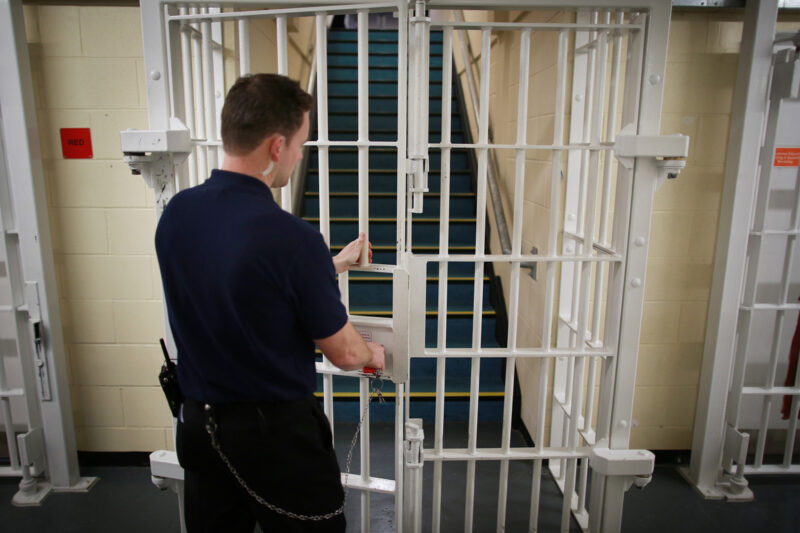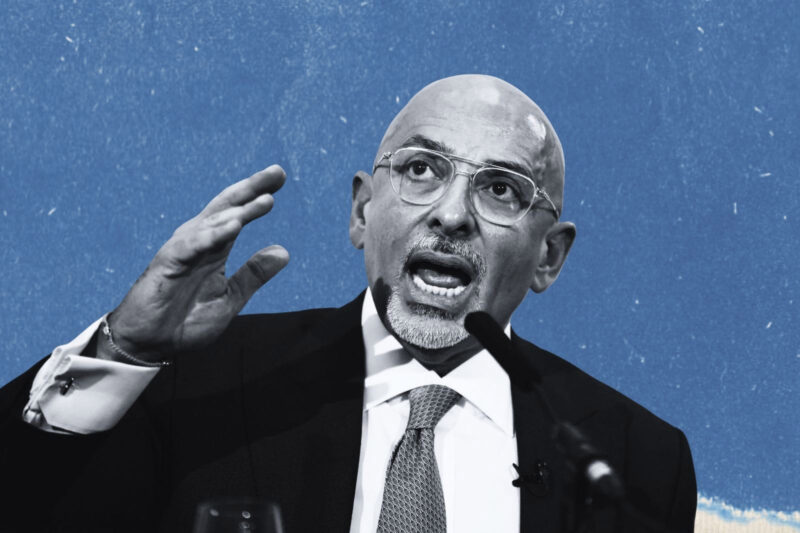Tackling child sex abuse is everyone’s responsibility
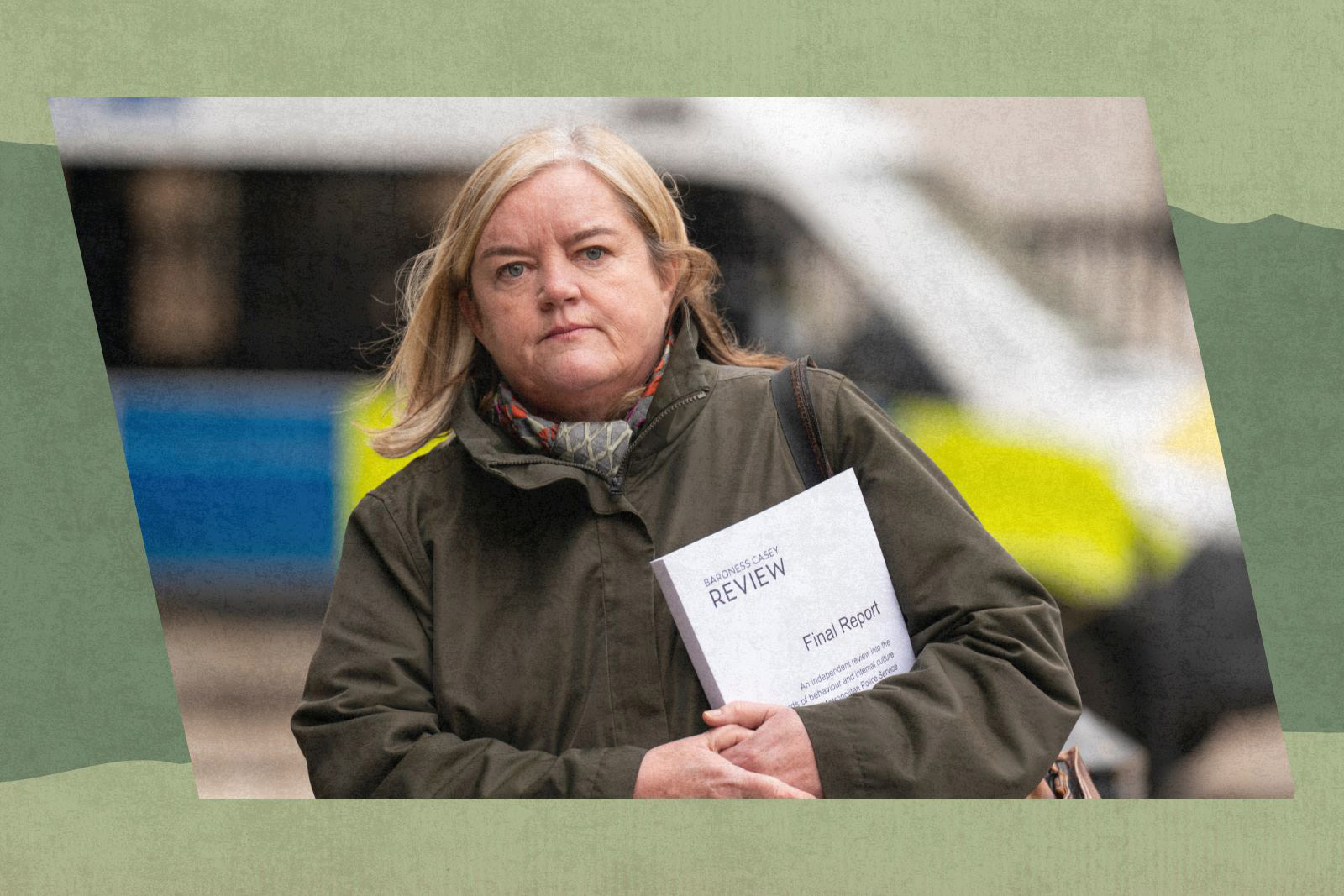
Plans to launch a full national inquiry into grooming and exploitation should not be seen as a win for the far right, but as a means to deliver justice for survivors
On 14 June, Keir Starmer announced a full national inquiry into group-based child sexual exploitation in the UK. The prime minister’s statement swiftly followed the recommendations of an audit of data and evidence related to such offences, launched in January and carried out by Baroness Louise Casey.
For more than 20 years, the issue of organised grooming gangs has generated fierce debate in parliament, the media and the public sphere, but at every stage, across society, avoidable mistakes have been made and important facts ignored.
One morning in 2002, a group of seven mothers visited the office of Labour MP Ann Cryer in Keighley, West Yorkshire. All had daughters, most aged 12 or 13. The girls, they said, had been befriended by older Pakistani men who picked them up from school and took them to parties where they were given drugs and alcohol, then abused by groups of men in their 20s and 30s.
The mothers had a list of 35 names and addresses. They had approached West Yorkshire police and social services but nothing was done. Cryer was outraged. She held meetings with police and social services to advocate on behalf of the mothers, to no avail. The police said the girls refused to give evidence and thought of the men as boyfriends.
Soon, it emerged that the News of the World — then the nation’s bestselling Sunday newspaper — offered the mothers £1,000 to share their story. Cryer feared tabloid sensationalism could inflame tensions in a community still healing from the Bradford riots of 2001. Meanwhile, the far-right British National party was gaining support, going on to win the Keighley West ward in the 2004 local elections.
Cryer asked her friend, a Pakistani councillor, to approach elders at the local mosque with the 35 names, encouraging them to visit the men’s homes and tell them that their alleged actions were against Islam. The elders allegedly told her friend to “go back to Ann Cryer and tell her it’s nothing to do with us”.
Frustrated, Cryer felt she had no choice but to speak to the local press. Then came the backlash. Some in the community accused her of racism. In reality, Cryer had no time for discrimination and belonged to the Socialist Campaign Group, on the left of the Labour party. When the mothers first approached her, she asked staff to check whether any had far-right affiliations. None did.
Cryer didn’t stop. She worked with then home secretary David Blunkett to make grooming a specific sexual offence and to enable courts to accept third-party evidence when victims were too traumatised to testify. By August 2004, 10 people had been charged with offences related to grooming in Keighley. Five were convicted and sent to prison.
Cryer refused to sugarcoat other issues within the Pakistani community such as forced marriage. Her bluntness often angered people. Some felt she had singled out Pakistanis for criticism. Others felt it was not her place, as a white outsider, to lecture them on their affairs. But if it was not the place of a local MP to raise concerns about issues affecting women in her constituency, whose was it?
More than 20 years on, it is clear that grooming was not confined to Keighley. In 2001, the names of taxi drivers allegedly picking up and abusing girls from care homes in Rotherham were passed to the police and the council. Convictions didn’t come until 2010. A report by professor Alexis Jay, published in 2014, found that between 1997 and 2013, at least 1,400 girls had been sexually exploited in the town. The report accused South Yorkshire police and Rotherham borough council of blatant failures and the suppression of documents related to the issue.
There were similar stories in Rochdale, Oxford, Telford and more. The pattern was tragically similar: young working-class girls, often from troubled or broken homes or the care system, preyed upon by older men.
Not only were those girls abused, they were failed by social services, the police and local authorities. Their neglect was steeped in misogyny and class prejudice. Some of the children were labelled sex workers and blamed by the very professionals who should have been looking out for them. The far right has, however, paid close attention to the issue ever since.
In January, Casey was tasked with leading an audit to discern the nature, scale and profile of group-based child sexual abuse in the UK. A 200-page report published on 16 June highlighted a culture of victim blaming and neglect from the authorities and found that the ethnicity of alleged abusers had been “shied away from by authorities”, with relevant data not recorded for two-thirds of grooming gang offenders.
Child exploitation and abuse is perpetrated by all demographics. According to new police data on the ethnicity of suspects arrested on suspicion of group-based offences in England and Wales in 2024, where ethnicity was recorded, just over half were white British. The same data, however, shows British Pakistanis overrepresented among suspects — accounting for one in eight while, according to the 2021 census, one in 37 people in England and Wales is of Pakistani heritage.
For Greater Manchester, South Yorkshire and West Yorkshire police forces, there was enough evidence to show “disproportionate numbers” of men from Pakistani backgrounds among group-based child sexual exploitation suspects. The report stated there were “many examples of organisations avoiding the topic altogether for fear of appearing racist”.
While I believe much analysis of the grooming scandal has downplayed the contempt often shown to survivors by the authorities, I also recognise other elements of Casey’s report.
Years ago in Luton, I was kicking up a fuss about caste-based biradri politics within the British Pakistani community, which I believe has led to some of our elected representatives being selected according to family background rather than merit. Two white labour councillors told me that they saw the problem, but feared the fallout should they speak about it. Such timidity — especially when related to child exploitation — does a disservice to everyone, including British Pakistanis, the overwhelming majority of whom are equally as appalled by the abuse of children as anyone else.
As a British Pakistani Muslim, I’ve always felt like I’m on the defensive, batting away generalisations, distortions and lies told by some journalists about communities they’ve never stepped foot in. But Casey’s words during a recent interview on Sky News also struck a chord with me. “If good people don’t grip difficult issues,” she said, “bad people do.”
Widespread failure to adequately confront the issue of child sexual exploitation has allowed the far right to own the discourse surrounding it. I recently spoke to a friend who was worried that a national inquiry into grooming gangs would give the far right and its media cheerleaders further opportunities to link the vile behaviour of a small minority to Islam and all of the 1.6 million people of Pakistani heritage who live in the UK.
Those fears are well founded. In 2015, Mushin Ahmed, an 81-year-old grandfather was murdered while walking to a mosque in Rotherham. During the attack, he was brutally beaten and called a groomer. Less than a year ago, the UK experienced the worst racially motivated riots in living memory, after far-right voices wrongly stated that the killer of three young girls in Southport was a Muslim immigrant.
There’s also been a great deal of political point scoring on this issue. When Starmer announced that a national inquiry is to take place, Conservative party leader Kemi Badenoch sent an email to members saying: “We’ve won.” In truth, successive Tory governments had 14 years to launch their own inquiry into group-based child exploitation, but did not do so.
They did, however, hold a broader independent inquiry into child sexual abuse, chaired by Jay, author of the 2014 Rotherham report. It took seven years to complete, comprised evidence from 7,000 victims and, in 2022, produced a 458-page report with 20 recommendations. They included making it a criminal offence for those in regulated jobs working with children to not report abuse they witnessed or were told about; better data on the ethnicity, sex and age of victims and perpetrators; a new cabinet minister for children, and a new child protection agency for England and Wales. They implemented none of them.
Now, some of Badenoch’s colleagues are attempting to undermine efforts to define Islamophobia, citing unease around discussing grooming gangs as a justification. The loudest voices have often appeared more focused on gaining advantage over political opponents than seeking justice for survivors of abuse, but that is no excuse for us to ignore or downplay the matter.
Today, survivors of abuse campaigning for justice are having to relive their trauma in courtrooms and television studios. They are not just white. Cultural stigma has prevented many South Asian women and girls from coming forward. In 2013, the Muslim Women’s Network UK published a report on the sexual exploitation of Asian girls. Members of the Sikh community have been raising concerns for years.
I’ve said many times that British Muslims are not a homogenous bloc. As such, we should not accept collective responsibility for the crimes of the few, but we should ask, in our tight-knit communities, where we pride ourselves on solidarity with the vulnerable and marginalised, what more we could have done, should have done and can do now to confront abuse and support survivors.
Notable efforts have been made. In 2013, 500 mosques delivered coordinated sermons condemning grooming gangs, while other community figures have also spoken candidly about the issue. In 2016, Christians and Muslims in Luton came together to establish Faiths Against Child Sexual Exploitation, an organisation that delivers training and workshops in the town.
The far right will always target our communities. No amount of work we do will be enough for them, but this issue is not about them and never was. It is about seeking justice for survivors, the care and respect we owe them, and finding ways to prevent such horrific crimes being committed again.
The NSPCC offers support to children on 0800 1111 and adults concerned about children on 0808 800 5000. The National Association for People Abused in Childhood (Napac) offers support for adult survivors on 0808 801 0331.
 Newsletter
Newsletter


